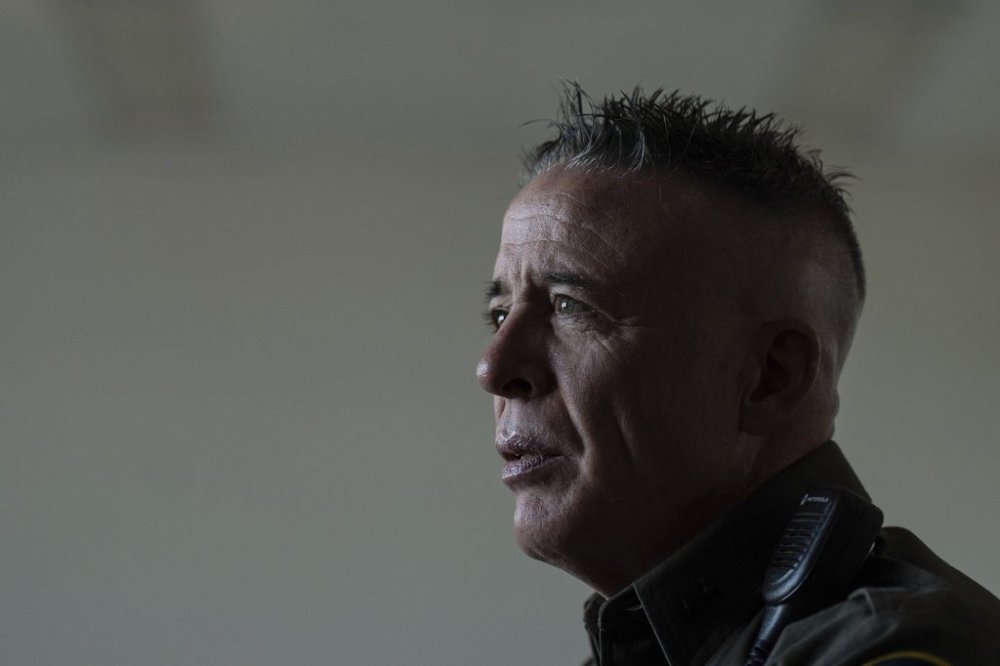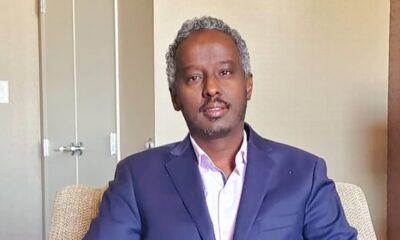World
Gregory Bovino Rebounds, Leads Aggressive Immigration Enforcement in LA

LOS ANGELES — In a notable shift in leadership, Gregory Bovino has transitioned from a sidelined position in the Border Patrol to spearheading immigration enforcement efforts in Los Angeles. His new role commenced on June 6, 2023, coinciding with a more aggressive approach to immigration policy under the Trump administration, which marked a departure from previous enforcement practices.
Bovino’s ascent is particularly striking given his recent history. Just two years prior, he was relieved of his command of the Border Patrol’s El Centro sector in California and was encouraged to consider retirement. This dramatic turnaround showcases the evolving landscape of immigration enforcement in the United States.
On a typical August morning, Bovino’s tactics were on full display. Several unmarked SUVs arrived swiftly outside a Home Depot in the Van Nuys area. Immigration officers detained a Guatemalan tamale vendor while armed agents maintained a watchful presence. Day laborers scattered as protests erupted, with demonstrators using sirens and whistles to voice their opposition. The operation concluded in less than five minutes, illustrating Bovino’s strategy of rapid response and minimal confrontation.
The impact of Bovino’s leadership has extended beyond Los Angeles. Reports indicate that he has communicated with officials in Chicago about anticipated immigration enforcement actions, aligning with statements from President Trump and Homeland Security Secretary Kristi Noem regarding a potential surge similar to that experienced in Los Angeles.
U.S. Immigration and Customs Enforcement (ICE), which has traditionally conducted lengthy investigations before making arrests, is seeing a shift under Bovino’s command. He emphasizes a quicker, more forceful approach, stating, “We’re going to turn and burn to that next target and the next and the next.” This strategy diverges from ICE’s historical practices of patient surveillance, often waiting outside homes for judicial warrants.
Bovino’s team has executed operations that reflect this new methodology. On multiple occasions, agents have forcibly entered properties and engaged in direct confrontations, a stark contrast to the more cautious tactics employed in previous years. He articulated his rationale for these aggressive measures, arguing that they are necessary to prevent potentially dangerous high-speed chases when individuals refuse to comply with orders.
While Bovino defends his approach, it has drawn criticism, particularly regarding allegations of racial profiling. Legal actions have emerged against him and the government, citing concerns over agents’ tactics during enforcement activities. Critics argue that the use of masked agents and aggressive entry methods disproportionately targets individuals based on their appearance or the nature of their work.
A recent court filing highlights these concerns, stating that “masked federal agents brandishing weapons cannot command people going about their daily lives to stop and prove their lawful presence solely because of their skin color, accent, where they happen to be, and the type of work they do.” In response, Bovino maintains that his operations are based on intelligence and are essential for public safety.
Bovino’s career trajectory has stirred discussion about the future direction of immigration enforcement in the U.S. His return to leadership coincides with a renewed focus on interior enforcement by the Border Patrol, harkening back to its original mandate. Having previously led significant operations in Las Vegas and other areas, he is viewed as a proponent of aggressive intervention strategies.
Since his return to prominence, Bovino has been the subject of scrutiny but remains undeterred. He has faced legal challenges related to racial profiling allegations stemming from raids conducted during his earlier tenure. Despite this, he continues to advocate for what he views as necessary tactics, including the use of masks by agents who feel their safety may be at risk.
As he navigates the complexities of his role, Bovino’s approach reflects a broader shift in immigration policy under the current administration. His determination to redefine enforcement practices raises questions about the balance between effective law enforcement and the protection of civil liberties. With the landscape of immigration in flux, Bovino’s actions will likely play a significant role in shaping future policies and practices.
-

 Politics4 weeks ago
Politics4 weeks agoSecwepemc First Nation Seeks Aboriginal Title Over Kamloops Area
-

 World5 months ago
World5 months agoScientists Unearth Ancient Antarctic Ice to Unlock Climate Secrets
-

 Entertainment5 months ago
Entertainment5 months agoTrump and McCormick to Announce $70 Billion Energy Investments
-

 Science5 months ago
Science5 months agoFour Astronauts Return to Earth After International Space Station Mission
-

 Lifestyle5 months ago
Lifestyle5 months agoTransLink Launches Food Truck Program to Boost Revenue in Vancouver
-

 Technology3 months ago
Technology3 months agoApple Notes Enhances Functionality with Markdown Support in macOS 26
-

 Lifestyle3 months ago
Lifestyle3 months agoManitoba’s Burger Champion Shines Again Amid Dining Innovations
-

 Top Stories2 months ago
Top Stories2 months agoUrgent Update: Fatal Crash on Highway 99 Claims Life of Pitt Meadows Man
-

 Politics4 months ago
Politics4 months agoUkrainian Tennis Star Elina Svitolina Faces Death Threats Online
-

 Sports5 months ago
Sports5 months agoSearch Underway for Missing Hunter Amid Hokkaido Bear Emergency
-

 Politics5 months ago
Politics5 months agoCarney Engages First Nations Leaders at Development Law Summit
-

 Technology5 months ago
Technology5 months agoFrosthaven Launches Early Access on July 31, 2025




















